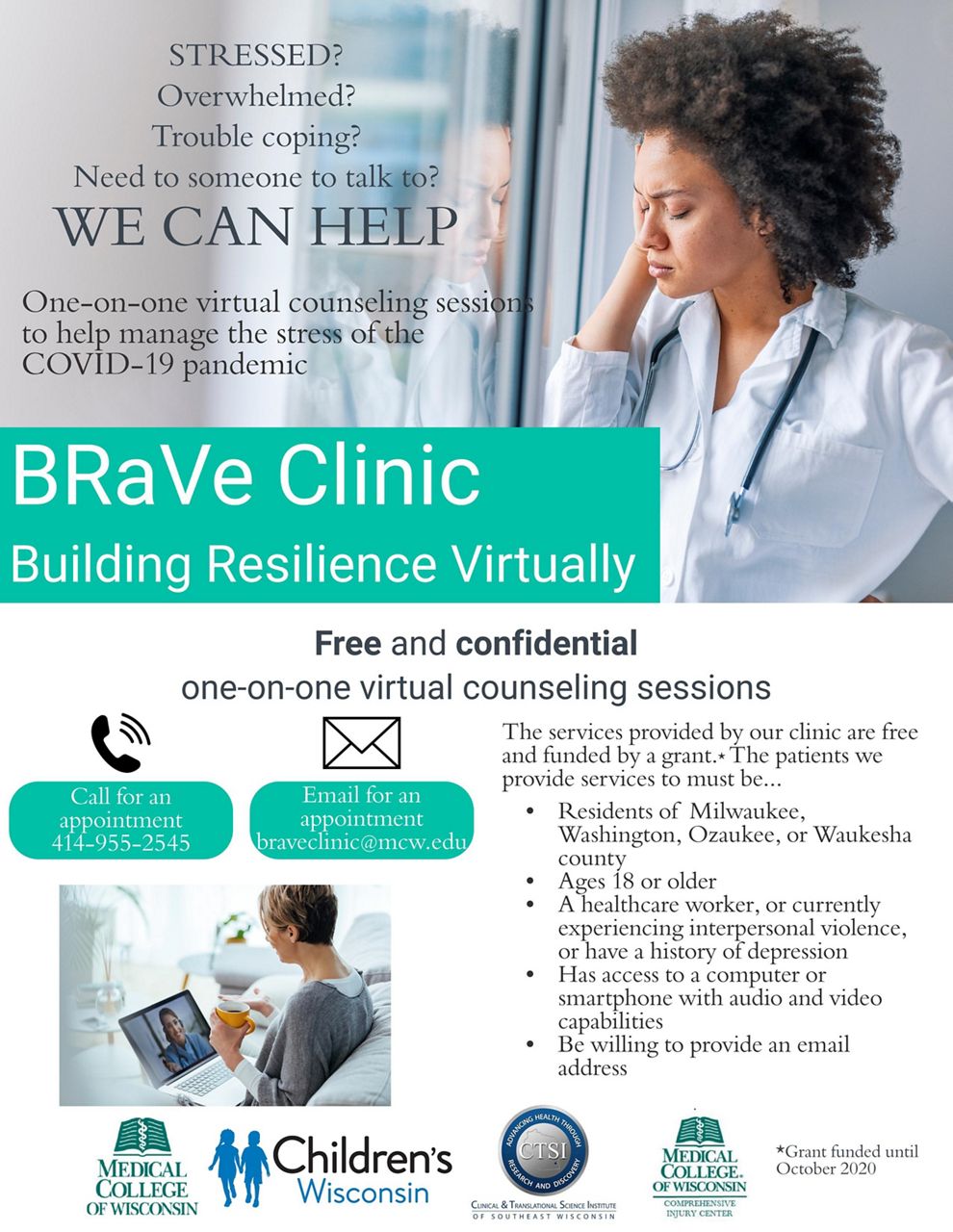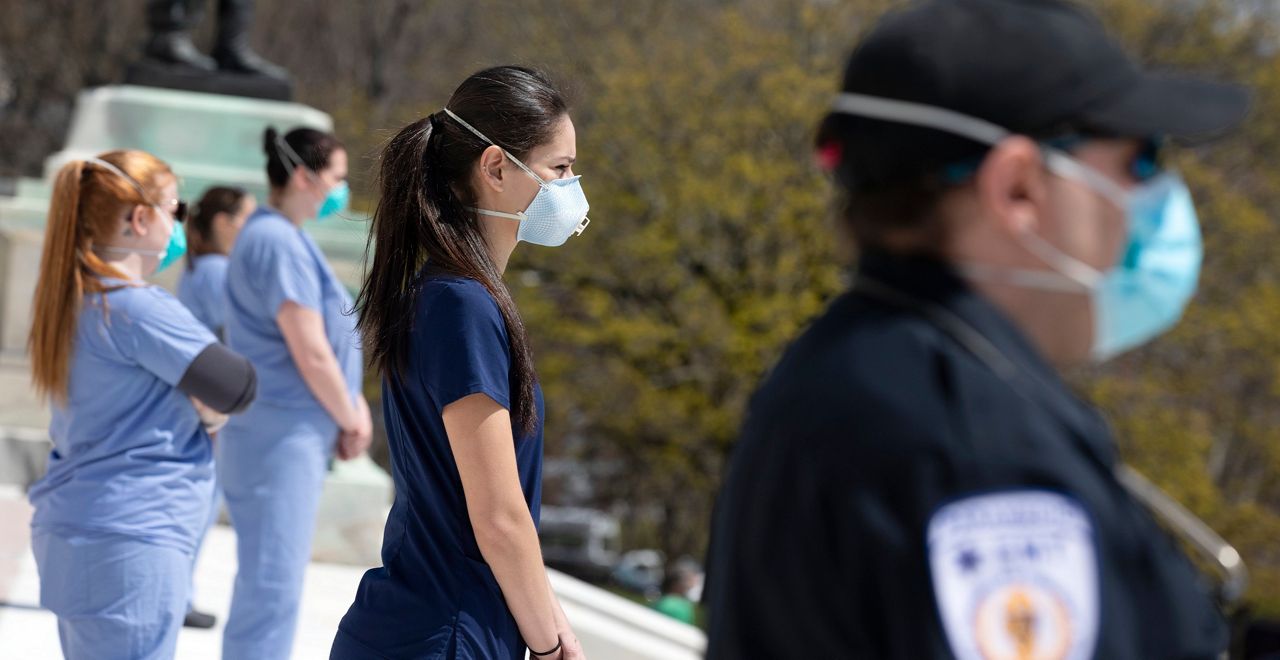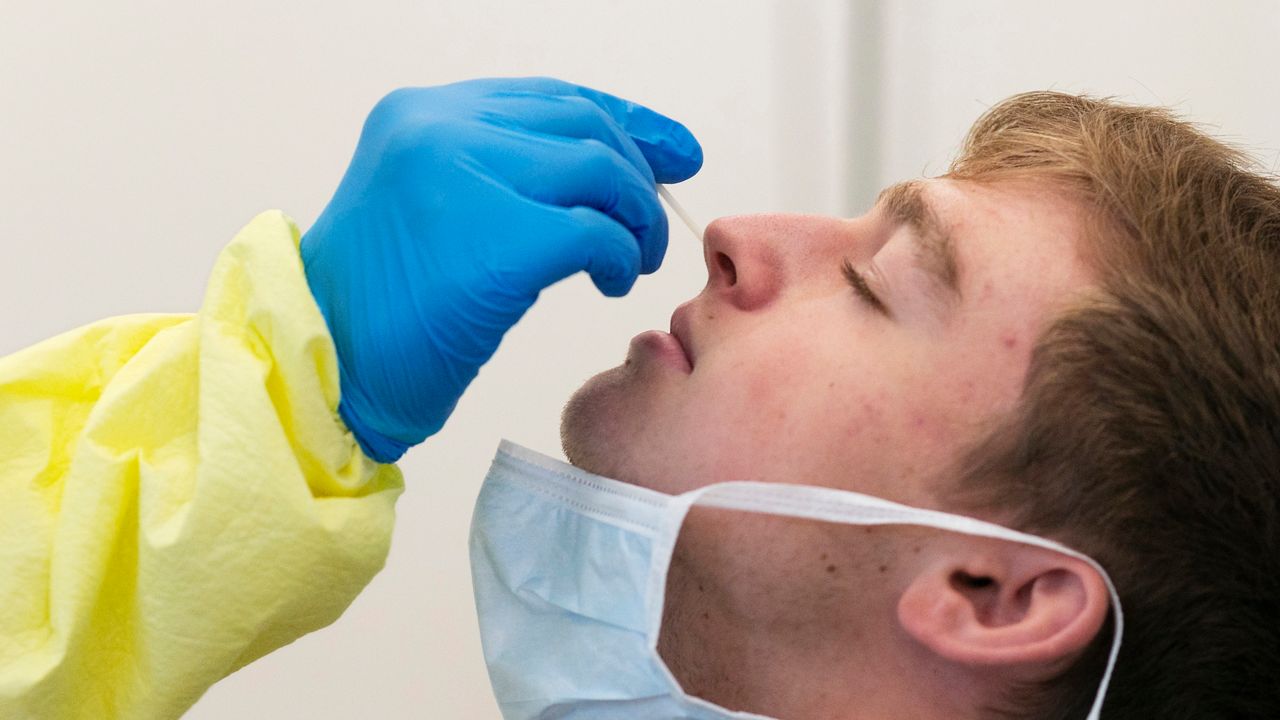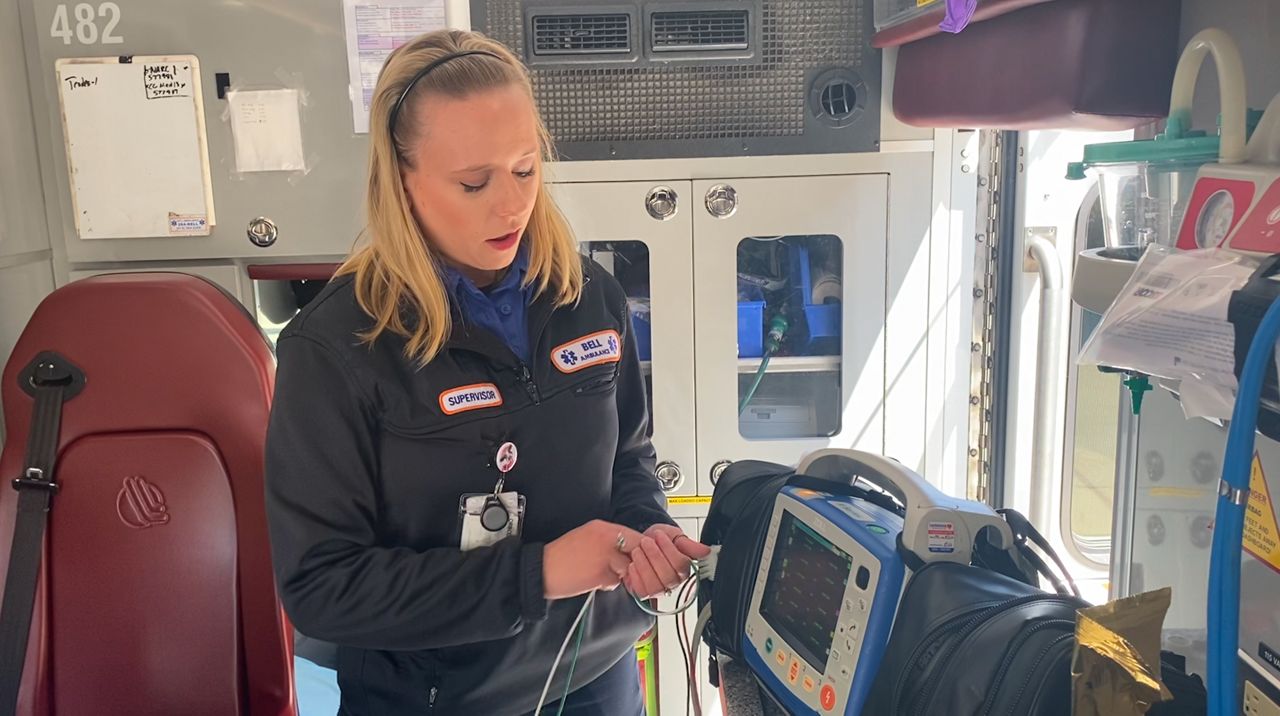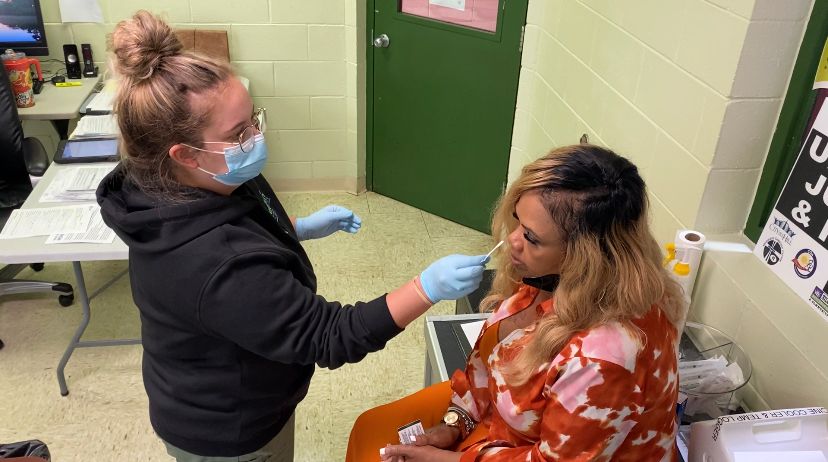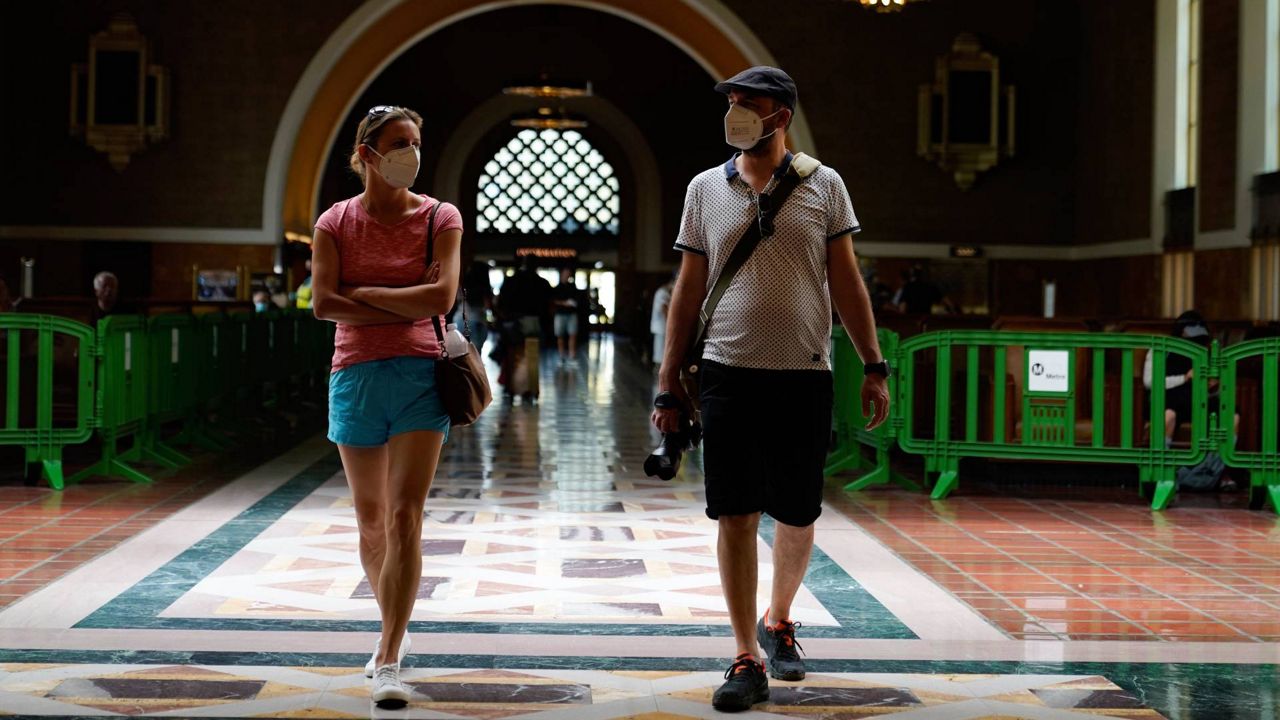MILWAUKEE, Wis. (SPECTRUM NEWS) — Over the course of the COVID-19 pandemic, many health care workers have been on the front lines serving their communities — at the risk of their own physical and mental health.
“They’re our first line of defense in helping us get through this pandemic,” says Kristin Kroll, an assistant professor at the Medical College of Wisconsin. “The things that they're having to see and do and work with are traumatic for anybody, particularly when they're fighting that concern of helping others and, at the same time, always that concern of bringing the virus back to their family at home.”
To help health care workers and other vulnerable groups manage the stress of the COVID-19 pandemic, Kroll worked with a team of medical professionals to start the BRaVe Clinic — whose name stands for “Building Resilience Virtually.” The clinic offers free, confidential counseling sessions to patients in Milwaukee and surrounding counties. It’s also open to individuals with a history of depression or those experiencing interpersonal violence.
For all of these groups, the pandemic has presented extra risks, says Terri deRoon-Cassini, an associate professor at the Medical College of Wisconsin who helped found the BRaVe Clinic. Isolation can lead to worse outcomes for people with depression, and more time at home has led to demonstrated increases in domestic violence.
“We know sometimes that people aren’t necessarily safe at home,” deRoon-Cassini says.
Since the clinic launched about three weeks ago, most of their patients have been health care workers, Kroll says. Surveys of health care workers around the world have shown that pandemic stress has taken a toll. In a February survey of more than 1,200 health care workers in China, researchers found 72% had reported experiencing symptoms of distress — including high rates for symptoms of depression, anxiety, and insomnia.
Even in normal times, the work environment for health care providers is tough, says Ryan Thompson, president of the Wisconsin chapter of the American College of Emergency Physicians. But COVID-19 has presented an “unprecedented challenge,” as emergency physicians have faced PPE shortages, the constant risk of exposure to the virus, and the fear of infecting loved ones. Providing support for health care workers is important to make sure they can keep doing their jobs at a high level, he says.
Thompson says there is sometimes an idea in medicine that seeking help is “a sign of weakness.” But he says it’s important that health care workers tap into their own mental health needs.
“There's increasingly an understanding that physicians are people too, and that we also can deal with mental health issues,” Thompson says.
At the BRaVe Clinic, deRoon-Cassini says they use two different strategies for helping patients. “Primary prevention” is all about helping prevent psychological distress from occurring, through exploring ways of coping with stress. “Secondary prevention” is the approach for those who may already be experiencing acute distress, and works to prevent long-term damaging effects, she says.
Building resilience won’t prevent people from having bad days or experiencing stress, she emphasizes — but it offers ways to respond to that stress while keeping up healthy habits and relationships.
Kroll says the clinicians have the freedom to build treatment plans of different frequencies and lengths for each patient’s needs. And even though the clinic’s staff can’t meet with patients in person, Kroll, who has researched telepsychology, says virtual appointments are just as effective as long as there is high-quality video and audio.
The clinic is funded up until October 2020 through a grant from the Greater Milwaukee Foundation, Kroll says. After that point, the team is hoping to find a way to continue the clinic and build it into a larger initiative.
As the novel coronavirus continues to threaten Wisconsin, the BRaVe Clinic’s leaders say they’ve been keeping up habits to care for their own mental health. For Kroll, praying and spending time with her husband and her baby have been helpful; deRoon-Cassini says she’s been going for runs and finding creative ways to connect with loved ones — from a safe distance. Both hope their clinic, and the conversations sparked during the COVID-19 crisis, can help fellow health care workers feel more comfortable asking for mental health support in the future.
“There’s still a stigma around, ‘I shouldn’t need support. I’m the caregiver, not the one being cared for,’” deRoon-Cassini says. “As time goes on, I’m hoping people are more open. We all have a limit to what we can do. We all need to be mindful and reflective.”
To set up a free counseling appointment, reach out to the BRaVe Clinic at (414) 955-2545 or braveclinic@mcw.edu.
